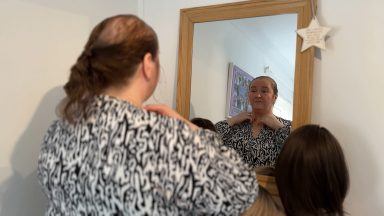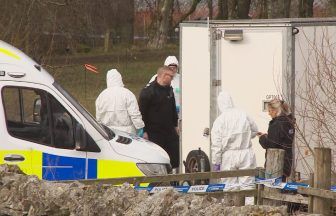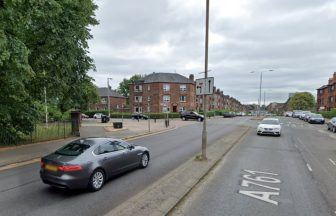The bombing of Pan Am Flight 103 over Lockerbie took place more than 30 years ago.
Since then, this case, defined by tragedy and lasting pain, has become the most notorious in Scottish criminal history, not least because at times it has felt that our entire system of criminal justice is in the dock.
Lockerbie is a byword for mass murder, a shocking event which is a part of Scotland’s past. But the aftermath of the horrific events of December 21, 1988, has cast the longest and darkest of shadows and thrown up questions which refuse to go away.
Thirteen years after the atrocity, Abdelbaset Ali Mohmed Al Megrahi, was convicted by a Scottish court sitting in the Netherlands of the crime.
That process was of itself unique, an uncomfortable international fudge steeped in geopolitical considerations but necessary if the incriminating evidence against the alleged perpetrators was ever going to be tried under Scots Law.
An appeal against Megrahi’s conviction was rejected by the High Court in 2002. A subsequent appeal was abandoned when a dying Megrahi was released on compassionate grounds in August 2009 by the justice secretary to the howls of international outrage.
That meant a referral by the Scottish Criminal Cases Review Commission (SCCRC) had to be abandoned. Today, a new application, submitted by Megrahi’s family has been referred to the High Court of Justiciary for determination.
It might be tempting fate in this narrative without apparent end but it just might be that the end is in sight ,at least in so far as the case against the Libyan is concerned. Whether the full truth surrounding Lockerbie will ever be known is another matter.
Today, the SCCRC accepted that a miscarriage of justice may have occurred on two distinct grounds: unreasonable verdict and non-disclosure. They rejected four other broad grounds of appeal.
The commission rejects the idea that there was insufficient evidence to convict, although it accepts the case was entirely circumstantial. Large parts of it have been questioned if not entirely discredited by the passage of time.
The commission casts doubt today on the firm belief at the original trial that Megrahi was the person who bought clothes from a Maltese shopkeeper that was found in the bomb suitcase.
The commission says a miscarriage of justice may have occurred because there is a reasonable doubt about whether the man buying clothes from Crown witness Tony Gauci was in fact Megrahi. The evidence showed that the purchaser ‘resembled’ the Libyan. They conclude: “The commission believes that no reasonable trial court could have accepted that Mr Megrahi was identified as the purchaser.”
Secondly, the commission concludes a miscarriage may have occurred because the Crown did not disclose to the defence that Gauci was in possession of photographs of Megrahi before an identification parade. They conclude this deprived Megrahi of a real chance of acquittal.
I always make a point of asking experienced defence lawyers what they make of the conviction. Many say that the case was a weak circumstantial one but did meet the necessary threshold for prosecution and conviction.
If the appeal court upholds the two grounds then that weak case will become weaker still and perhaps too weak for the conviction to stand.
The non-disclosure ground is particularly pertinent since the suspicion is that the Crown has concealed evidence that, whilst not proof of innocence, would have weakened the testimony of their star witness.
The wheels of justice turn slowly and indeed agonisingly if you are a prisoner protesting innocence.
I was involved for many years in the case of Stuart Gair. His murder conviction was quashed in 2006 following a life sentence dating from 1989. His was the second case the SCCRC referred to the appeal court.
The wheels of justice turned slowly for him and the burning sense of injustice was compounded when he died of heart failure, aged 44 and a mere 16 months after his conviction was finally quashed.
In just over 20 years of existence, the SCCRC has referred 23 murder cases (up until August of last year) to the High Court. Of those 16 were unsuccessful and one (Megrahi’s) was abandoned. That leaves six cases where convictions have been quashed.
Among the unsuccessful cases are appeals from prisoners who were sentenced as far back as 1971, 1973 and 1977.
The new appeal will test the case against Megrahi, nothing more. In referring the case, the SCCRC are not saying that he is innocent – rather that the court may wish to consider IF a miscarriage of justice has occurred.
For the Megrahi family, the end game might just be in sight but success is far from certain.






















